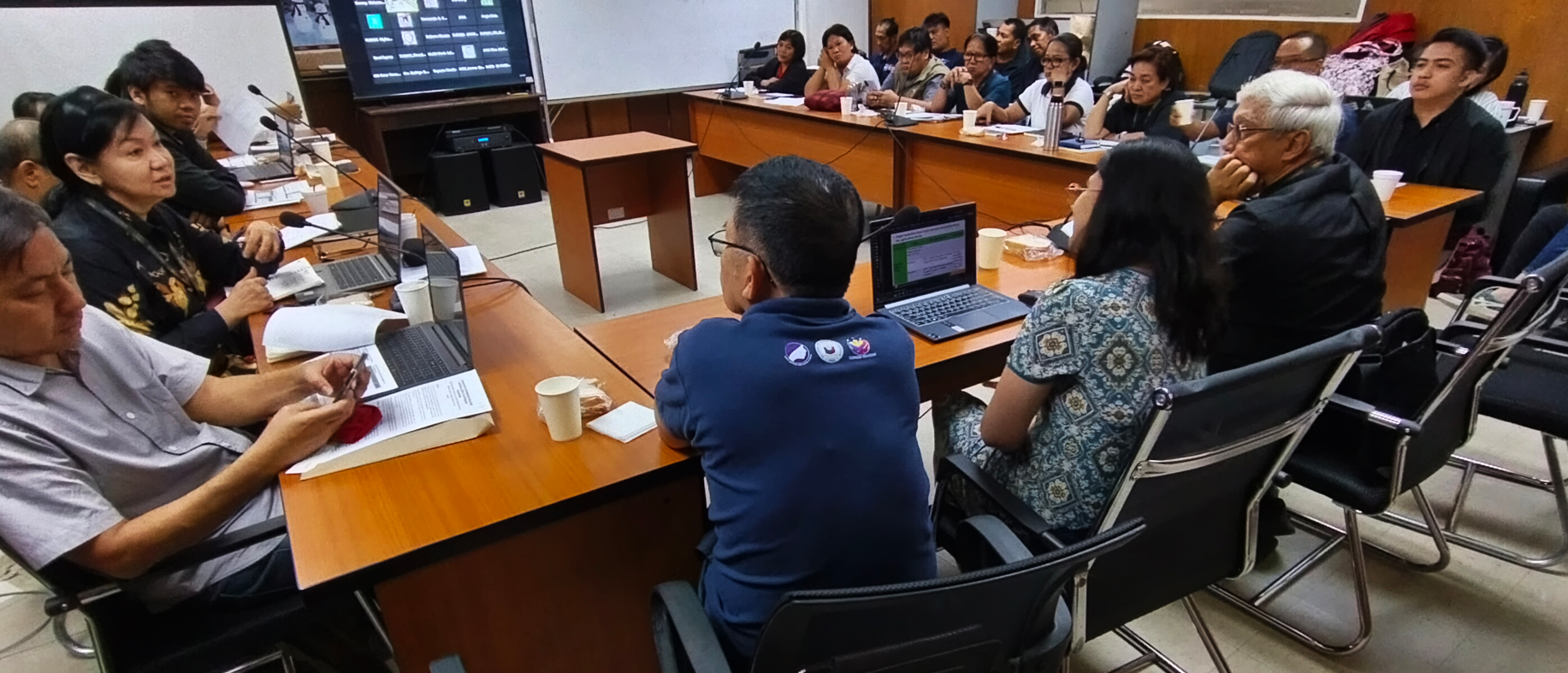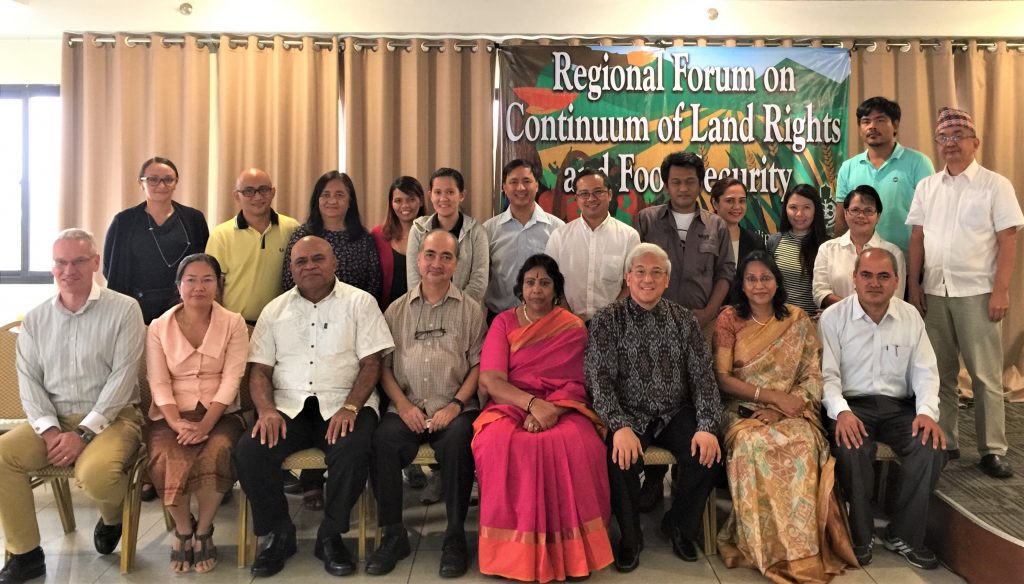


Civil society representatives from seven countries gathered together to discuss how actual and perceived land tenure security affects the overall food security of smallholder farmers.
In a regional forum organized by ANGOC which was held last 16 October 2017 at Verjandel Hotel, Quezon City, a regional overview, and three country studies conducted in Cambodia, Nepal, and the Philippines, were presented. The diverse cultures and varied political environments in these three mentioned countries provide unique contexts for each study. The four presentations served as springboards for discussion.
Building on the Continuum of Land Rights of the Global Land Tool Network (GLTN), the overall goal of the studies was to pilot a participatory, evidence-based documentation on access to land as a key intervention in addressing food insecurity in rural areas. In particular, the studies attempted to: (a) outline a land rights continuum in Cambodia, Nepal, and the Philippines; and (b) describe the links between land rights and food security, through community-level studies.

(L-R) Mr. Jagat Basnet from CSRC and Mr. Antonio Quizon, former ANGOC Chairperson, discuss the land continuum in Nepal.
Qualitative data were gathered from 49 community-level focus group discussions (FGDs) – seven in Cambodia, 20 in Nepal, and 22 in the Philippines. Results were then analyzed by mapping patterns in existing land tenure practices, and on the relationship between land tenure and food security. Findings from the FGDs were then compared among the different tenure groups in the continuum.
The 28 participants from Bangladesh, Cambodia, Fiji, Nepal, India, Indonesia, and the Philippines[1] commented on the papers and provided recommendations to the issues presented.

CIRDAP Director General Tevita Boseiwaqa shares his reflections on the four presentations.
Mr. Tevita Boseiwaqa, Director General of the Centre on Integrated Rural Development for Asia and the Pacific (CIRDAP), also provided his reflections on the presentations and discussions. He noted that land and tenure security are crucial in securing peoples’ dignity. Echoing other participants’ comments, Mr. Boseiwaga also highlighted the need to look into women, youth, and the disabled in relation to the continuum of land rights. He further stated that while the links between land rights and food security are apparent and while legal frameworks for securing the right to land are in place, actual practices on the ground may paint a different story; much work is yet to be done.
The finalized studies were then compiled into a publication entitled From the Farmland to the Table: Exploring the Links Between Tenure and Food Security, which may be accessed here. Both the regional forum and the mentioned publication were made possible through the support of the GLTN.
[1] Organizations present included Association for Land Reform and Development (ALRD) from Bangladesh; STAR Kampuchea from Cambodia; Centre on Integrated Rural Development for Asia and the Pacific (CIRDAP) represented by DG Tevita Boseiwaqa from Fiji; Community Self-Reliance Centre (CSRC) from Nepal; South Asia Rural Reconstruction Association (SARRA) from India; Indonesian Forum for the Environment (WALHI) from Indonesia; Solidarity towards Agrarian Reform and Rural Development (Kaisahan), Xavier Science Foundation – Institute of Land Governance (XSF-ILG), Center for Agrarian Reform and Rural Development (CARRD), Philippine Partnership for the Development of Human Resources in Rural Areas (PhilDHRRA) from the Philippines; the Deutsche Gesellschaft für Internationale Zusammenarbeit GmbH (GIZ); the Food and Agriculture Organization of the United Nations (FAO); and the Global Land Tool Network (GLTN).
